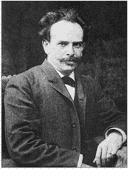
Boas, Franz (1858–1942), German American anthropologist and ethnologist, born in Minden, and educated at the universities of Heidelberg, Bonn, and Kiel. In 1883–1884 he made a scientific exploration of the Baffin Island region of the Arctic. Two years later he immigrated to the United States and made the first of many trips to study the Kwakiutl and other tribes in British Columbia. From 1888 to 1892 he was instructor of anthropology at Clark University, and in 1899 he became the first professor of anthropology at Columbia University, where he taught until 1937. He was also curator of ethnology at the American Museum of Natural History, New York City, from 1901 to 1905. Boas organized and took part in the Jesup North Pacific expedition of 1902, which suggested the possibility of a strong relationship between northern Asian and northwestern Native American cultures. He was president of the American Anthropological Association in 1907 and 1908 and of the New York Academy of Sciences in 1910.
Boas’s anthropological studies have become classics in the field. He pioneered in the use of a scientific approach to anthropology. He also demonstrated the necessity of studying a culture in all its aspects, including its religion, art, history, and language, as well as the physical characteristics of the people. One of his most important conclusions was that no truely pure race exists, and that no race is innately superior to any other. He wrote The Growth of Children (1896), The Mind of Primitive Man (1911), Anthropology and Modern Life (1928), and Race, Language, and Culture (1940).
Copied from: Microsoft ® Encarta ® Encyclopedia 2004